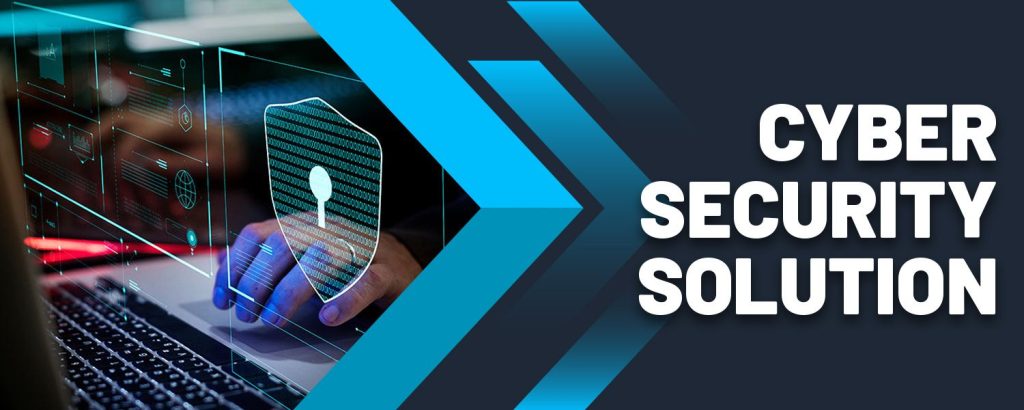
In today’s digital world, data breaches and cyber attacks have become common occurrences. Without proper protection, your sensitive information can easily fall into the wrong hands, leading to severe consequences for both individuals and businesses. Therefore, it is crucial to implement robust cybersecurity solutions to safeguard your data from unauthorized access and potential threats. This article will explore various effective measures you can take to protect your valuable data.
1. Use Strong and Unique Passwords
One of the simplest yet most effective ways to enhance your data security is by using strong and unique passwords for all your accounts. Avoid using common passwords like “123456” or “password” that are easy to guess. Instead, create complex passwords with a combination of numbers, letters, and special characters. Additionally, ensure that you have different passwords for each of your accounts to prevent a single breach compromising all your online data.
2. Implement Two-Factor Authentication
Two-factor authentication (2FA) adds an extra layer of security to your accounts by requiring users to provide two forms of identification during login. This commonly involves using a password and a unique verification code sent to a trusted device. By requiring both something you know (password) and something you have (device), 2FA significantly reduces the risk of unauthorized access even if your password is compromised.
3. Keep Your Software Up to Date
Regularly updating your software is essential to maintaining a secure environment for your data. Software updates often include patches and fixes that address vulnerabilities found in previous versions. Hackers frequently exploit known weaknesses in outdated software to gain unauthorized access to systems. By staying up to date, you can ensure that your software has the latest security features and minimize your exposure to potential threats.
4. Utilize Antivirus and Anti-Malware Software
Antivirus and anti-malware software play a crucial role in protecting your data against malicious attacks. These programs scan your system for any suspicious activities, viruses, or malware and quarantine or remove them before they can cause harm. It is important to choose reputable software solutions and regularly update them to ensure they can effectively detect and respond to the latest threats.
5. Encrypt Your Data
Data encryption is an effective method of protecting your sensitive information. Encryption converts your data into a code that can only be decrypted with the correct encryption key, making it extremely difficult for unauthorized individuals to access your data even if they manage to intercept it. By encrypting your data, you add an additional layer of security, especially when transferring or storing it on external devices or in the cloud.
6. Regularly Backup Your Data
Regularly backing up your data is crucial in the event of a breach or a system failure. By creating frequent backups, you can restore your data to a previous state if it becomes compromised. It is recommended to use both local and remote backups to ensure redundancy. Cloud storage services and external hard drives are popular options for secure data backups that can be easily accessed when needed.
7. Educate Yourself and Your Team
One of the most important aspects of cybersecurity is knowledge. Educating yourself and your team about best practices, potential threats, and the latest trends in cybersecurity will enable you to make informed decisions and take the necessary precautions to protect your data effectively. Regular training sessions and workshops on cybersecurity awareness can help create a security-conscious culture and minimize the risk of human errors that could lead to data breaches.
8. Secure Your Wi-Fi Network
Securing your Wi-Fi network is vital to prevent unauthorized access to your data. Change the default username and password of your router, use the latest encryption standards (e.g., WPA2 or WPA3), and regularly update the firmware to ensure the security of your network. Additionally, consider using a separate guest network to keep your home or business Wi-Fi network isolated from visitors.
9. Implement Firewalls and Intrusion Detection Systems
Firewalls act as a barrier between your internal network and the external world, monitoring and controlling incoming and outgoing traffic to prevent unauthorized access. Intrusion Detection Systems (IDS) monitor network traffic for suspicious activities and potential attacks. By deploying firewalls and IDS, you can protect your data from unauthorized access, malware, and other cyber threats.
10. Stay Vigilant and Keep Evolving
Cybersecurity is an ongoing battle, as hackers constantly evolve their techniques to overcome existing security measures. It is essential to stay vigilant and regularly review and update your cybersecurity strategies. Keep up with the latest trends, follow cybersecurity news, and adapt your security measures to address emerging threats effectively. Regularly assess your systems for vulnerabilities and implement proactive measures to address them promptly.
By implementing these cybersecurity solutions and staying informed about the ever-evolving threats, you can significantly enhance the protection of your valuable data. Remember, in the digital age, data security should be a top priority to prevent the devastating consequences of a data breach.


